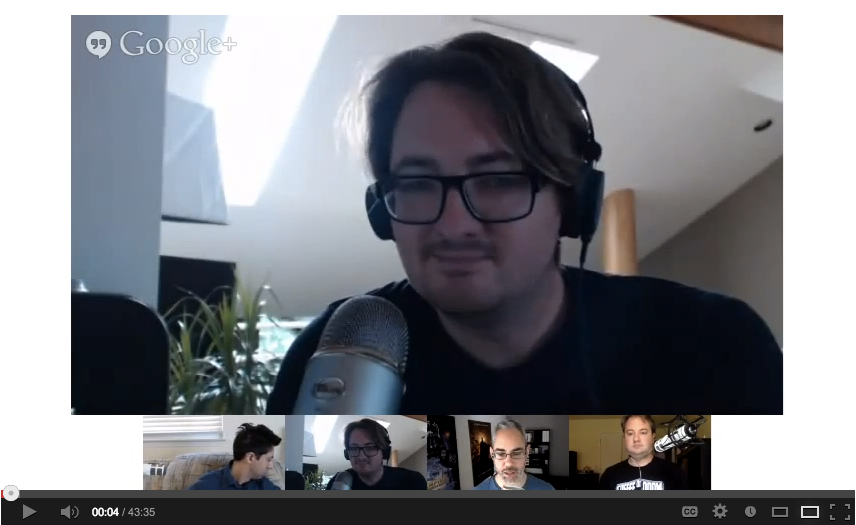Being mobile-ready: Google Hangouts will kill every webinar platform out there

With what we now know about the pace of mobile broadband penetration and mobile computing power, it’s pretty safe to say that people are going to rely more and more on mobile technology to do their work. And communicating with others is a big part of doing work.
Call them what you like, but Internet-based meetings and presentations are a big part of how businesses and entrepreneurs, both large and small, communicate. I’ve been paying attention to this market for a while and right now I think we’re watching Google deliver a crushing blow to every other major platform.
Most readers probably know about Google Chat, which eventually morphed into Google Hangouts. Initially these hangouts were limited to 10 people and could not be broadcast to the world. Then, before we know what hit us, Google announces the ability to do “live on air” hangouts. You can still have a bunch of people together in a meeting, but you’re simultaneously broadcasting the whole thing to the world through the power of YouTube.
Amazing. Simply amazing. If you’re paying attention to Talk Mobile then you’ve already seen Phil, Dan, Kevin, Rene and Marcus using the tool. Is it as good as the Skype-based technology Mobile Nations has been using previously? Not yet, but you they’d all agree it‘s improving much faster.
What does this have to do with mobile? A couple of things. First, many audience members who want to watch online meetings will be on mobile devices. Because YouTube already works beautifully on mobile devices it gives Google a leg up on the competition. Also, I think it won’t be long before the actual presenters in webinars are starting to use mobile devices to capture video.
Think about it. Most high end tablets and smartphones have better cameras than competing high end laptops. This stems from people actually wanting to take good quality pictures or video with their mobile devices, versus not being all that picky about the quality of pics captured by a webcam.
Now think back to the early days of YouTube videos. Pretty much everything was based on a single camera shoot -- and a crappy camera at that. Now we have all sorts of productions where people either shoot in multi-camera environments and edit a video after the fact, or more commonly at live events, they shoot with multiple cameras but use a physical switch to record only one final video feed.
Be an expert in 5 minutes
Get the latest news from Android Central, your trusted companion in the world of Android
As technology improves, so does production value that goes into video. I suspect the same thing is going to happen in the world of webinars. Given the prevalence of high quality cameras on mobile devices, I also think we’re going to see a future where mobile devices become those multiple camera angles. Who better to do this than Google? It can leverage Android, Google+, YouTube and create an easy solution for anyone to run a mobile camera webinar and control everything from a tablet or laptop.

The sad truth about this is it kills the businesses who specialize in webinar platforms. Think Webex (bought by Cisco), GoToWebinar, and Citrix. Did Google set out to kill them? Probably not. It doesn’t matter.
The future of online meetings is clear. More people will watch via mobile devices, and then more people will start to actually produce meetings on mobile devices. Google has the best and fastest-improving mobile platform to do this. Thinking back to when Google+ first launched, I thought Google would fail at creating a social network. I was wrong ... but it’s OK because I admit it. If Google crushes everyone else in the online meeting market, which I fully expect, they become the de-facto leader in social networking among the professional market and possibly many other markets.
As a technology geek and an investor in the tech sector, I’m fascinated by what Google is doing here.
So let’s hear from you. How do you see Google shaping the world of online communication? Do you agree or disagree that the mobile angle matters as much as I think it does?

